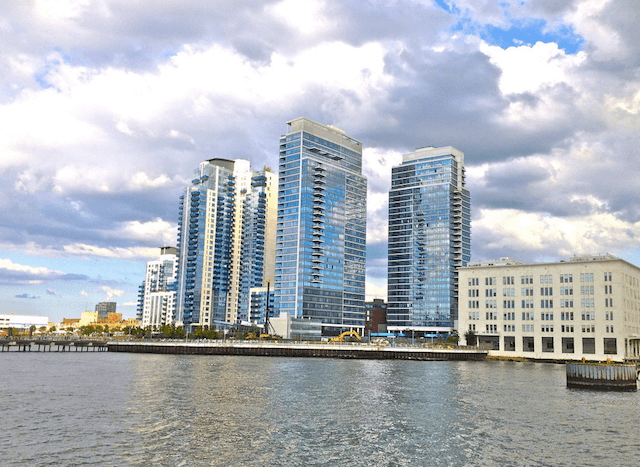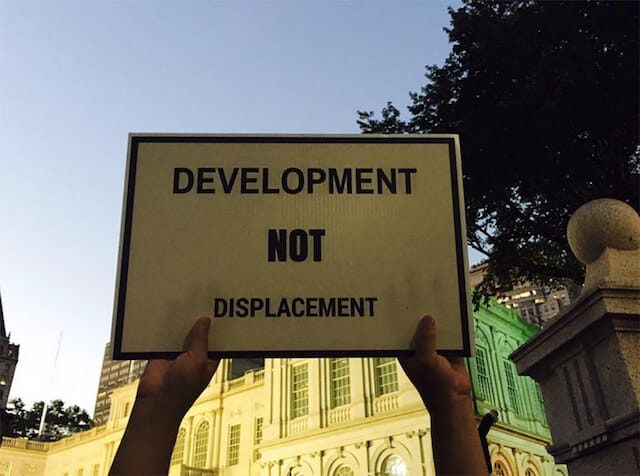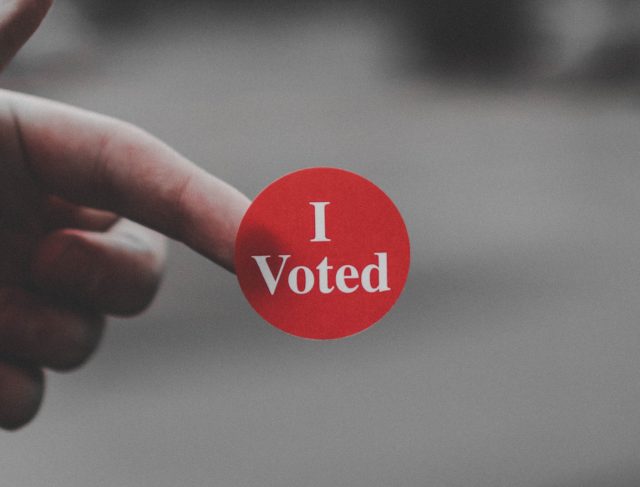
Gentrification is a force to be reckoned with. It is a phenomena with no head to be negotiated with, no body to be sized up – just a tangible happening, a visible social change which comes to our neighborhood’s and takes root in every aspect of our culture and society. And so people have begun to feel guilty for adding to the headless beast, for contributing to the body-less force, and asking how they can move to gentrifying areas and, despite their actions and most core characteristics, somehow not be considered “gentrifiers”. It’s an honest question, but so contradictory and non-urgent – “How do I not feel guilty for doing what I voluntarily chose to do?” – that it’s becoming more of a joke than a serious conversation.
The humor website of San Francisco based publishing company McSweeney’s published a list last week titled “Steps I Take to Counteract Gentrification While Living In a Luxury Building in Brooklyn“. The steps, exponentially more self-aware than any episode of Girls, use sarcasm to make clear the tone-deaf and wildly awkward relationships with race which go rampantly unchecked among many of the more privileged, white, borough newcomers. Highlights include, “Name my purebred Golden Doodle ‘Rosa Parks’,” “Pretend to sing along and casually dance to the loud reggaeton music blasting on the Knickerbocker Avenue sidewalks while I shop for an antique cast iron tea kettle,” and “Bring people’s attention to important issues by posting #BlackLivesMatter stickers all over my building’s sauna.”
________

It would take a truly naive mind to not see the issue with any of the examples on this list, each more deplorable than the next, but the question remains: Is there actually a way to gentrify without being a gentrifier?
Let’s break it down. Gentrification is literally defined as an influx of people to an area where the newcomers are more wealthy than the current residents. So all being a gentrifier means, by definition, is that you are wealthier than the longtime residents who historically compose the area. In 2017 Brooklyn, though, “gentrifier” has become more or less synonymous with “transplant”, technical definitions aside.
In short, then, no – if you move to an area where you’re richer than most area residents, you’re a gentrifier and are thus contributing to gentrification with your presence in the neighborhood. Gentrification is something of an absolute, and there aren’t ways for the word to only partially apply. Sure, Park Slope is more gentrified than East Williamsburg, but wealthier newcomers in both areas share the identity of gentrifier.
________

So then, is it possible to “counteract” gentrification while being a gentrifier? Well, you can go work for the Department of Housing, give a lot of money to an old school mom and pop in danger of closing, or pay the rent of someone who otherwise couldn’t afford to stay in the area. Those actions would all directly help preserve the community which was there before you, and thus technically counteract gentrification. But unless you’ve literally got money to burn or inline dreams, those are some fairly extreme actions on most of our budgets, and at the end of the day you’re still a gentrifier.
The answer then is technically yes, but realistically no: Gentrifiers cannot counteract gentrification. By all means, though, if every gentrifier actually shopped local, treated their neighbors with respect, and got familiar with their neighborhood’s culture, the word wouldn’t be nearly as stigmatized.
The author’s credentials include being born here, raised here, having a parent born and raised here, a grandparent born and raised here, and living in the same neighborhood she grew up in.
One Response to
Leave a Reply




The key is to care about the neighborhood and support local business, not usher in chain stores and bland-ification.